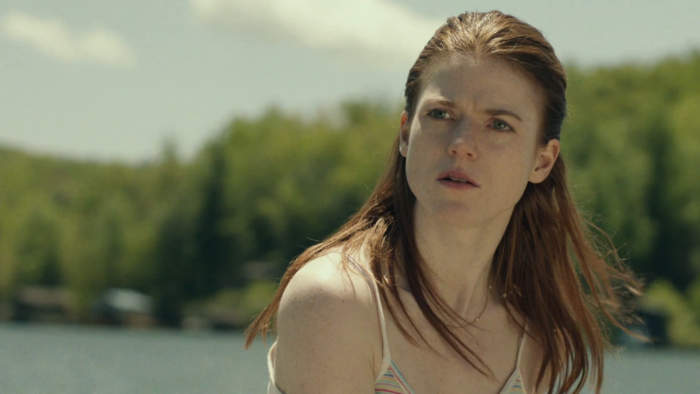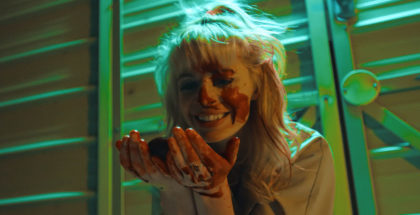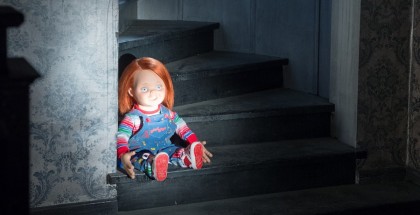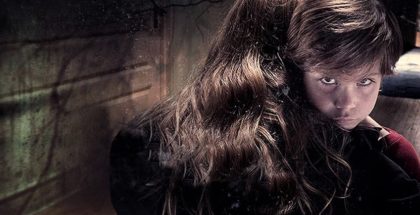VOD film review: Honeymoon
Review Overview
Harry Treadaway and Rose Leslie
9Understated genre vibe
8Marital disharmony
8Anton Bitel | On 04, Oct 2019
Director: Leigh Janiak
Cast: Harry Treadaway, Rose Leslie
Certificate: 15
The opening image of Honeymoon is of tin cans on strings being drawn along the road by a car. For as its very title implies, director Leigh Janiak’s first feature – which she co-wrote with Phil Graziadei – is concerned with marriage, or, more particularly, with what comes next in a relationship. When we first meet them, Bea (Rose Leslie) and Paul (Harry Treadaway) are already ‘just married’, and driving off to the Canadian lakeside cottage where Bea grew up as a child. It is off-season in spring, and still too cold for vacationers to move into any of the holiday houses dotted around the lake, and so this modern, loving couple is looking forward to spending their honeymoon in only each other’s company, before heading back to their future lives together in the city.
“You’re probably spotting a theme here,” Bea comments of a cottage whose amenities have remained the same since the 80s, “Change is bad.” Yet change is coming. For after Bea goes off sleepwalking into the woods on their first night, she no longer quite seems herself. Perhaps it is her forgetfulness, or her mild aphasia – just little things marking differences that Paul cannot, in these intimate surroundings, help but notice. Perhaps she is having clandestine nocturnal trysts with Will (Ben Huber), her old flame who now runs the only local restaurant with his wife, Annie (Hanna Brown), and is clearly unhappy in their relationship.
“I’m not like him, you’re not like her,” Paul reassures Bea, “We’re not like them.” Yet perhaps they are. Perhaps their marriage, still in its early stages, will gradually transform into the kind of dysfunctional, violent relationship that Will and Annie share. After all, marriage itself changes people, for better or worse.
Honeymoon is a genre film, and as Bea undergoes change, struggling to hold onto her own individual identity and memory – even as she becomes, like the ornamental ducks on display in the bedroom, “fake and hollow [and] empty inside” – the chill settling between Bea and Paul is borrowed from Invasion of the Body Snatchers, by way of Andrzej Zulawksi’s Possession (1981). While this certainly keeps the film thrilling, it also figures marriage as a medium for metamorphosis (in a film full of references to metamorphic creatures such as bees, moths and frogs), wherein impregnation and alienation threaten to obliterate romance by replacing it with conformity, drudgery and transferred affection.
So palpable is the chemistry between Leslie and Treadaway that even the slightest nuanced shift in their characters’ connection seems doom-laden, signifying the beginning of the end. It is as though this brief honeymoon period contains and condenses the entire course of a marital relationship, from sexed-up loving through secretiveness, deceit and distrust, to recrimination, desperation and rupture, and finally into the embrace of an Other. It is an assured, engaging debut about the forces, both internal and external, that can divide even the strongest-seeming marriage.




















